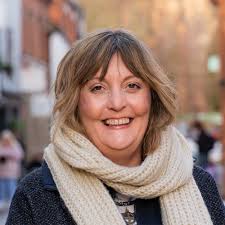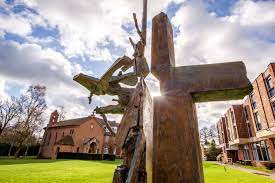
I first encountered community organising when living in Belfast in the late 90s/ early 2000s.At that time, there were lots of people and organisations involved in active community work, hoping to help build a new, cohesive society in the wake of the Good Friday Agreement.
What was notable was that whilst everyone may have been sharing the same overall aim, how they went about this differed vastly. There were a number of projects which operated under the assumption that they were bringing a solution to a community which needed ‘fixing’. Some did consult with communities through use of community audits or similar tools-but it always felt as though there was no guarantee that what we said might be helpful would actually come to fruition.

People trained in organising practices stood out because of their genuine desire to build relationship, to listen and talk, on an equal footing, about what change might look like. To hear about what was good in the community, as well as what was challenging. They looked for leaders amongst local people, people with lived experience. They knew that trust, particularly in communities who have needed to be wary for so long, takes time to build. To recognise that sometimes what seemed like the smallest of steps-bringing people from different communities together-was actually a huge step for those involved.
These practices, almost unconsciously, became implicitly embedded in the way I worked. Asa relatively new Christian, it seemed to me to be obvious that this was how Jesus had lived and worked, and that I should try to do likewise.
As an ordained Methodist Deacon, I have used community organising in circuit and district appointments. Perhaps most significantly, in my role as Director of Development for Adavu, it was these practices that helped shape the underlying ethos of the work; that we should work with and alongside survivors of modern slavery, and that their lived experience should shape continued development.
Whilst working as a Methodist Tutor at the Queen’s Foundation, Birmingham, I was asked to take a lead on social justice engagement for the college. This included developing partnerships and collaborations with local organisations. My colleague, Gary Hall, suggested we have further conversations with Citizens UK, an organisation that had been on his radar for a while. Those initial conversations lead to a significant partnership with Citizens UK, and, in particular, their Birmingham chapter. I had the opportunity to go on their six-day training course; for me this was a transformational experience. It offered me a clear framework and rational for the ways of working that I had been doing almost instinctively, intuitively, as many of us do. It challenged me to think more deeply and critically about power; to understand it not as a negative, or a positive, but as something neutral, which can be used or misused.

We developed opportunities for some of our student ministers at Queen’s to engage in introductory community organising training; an experience which many also found positive, but which some struggled with. I was reminded that for churches to really engage with organising practices will require a significant culture shift; a shift from provider model (offering things to our community, to meet needs), to a model of being alongside, and with. When I moved into my current role, as Learning Network officer for the Methodist Church in the West Midlands, I continued to ponder how we could help local churches make this shift
Part of my role involves working in collaboration with District staff to help churches and circuits to discern what God might be calling them to next.
We noticed some common challenges they were experiencing. Firstly, that for some churches, this felt like a daunting and overwhelming task. People who feel tired and even drained by ‘keeping things going as they have been’ struggle to imagine a new way of being.
Secondly, even for churches or circuits for whom vision was emerging, knowing how to turn vision into action was a different task.
It’s understandable that many found it easier to think about replicating something they had seen working elsewhere, rather than really taking the time to discern what new thing God might be doing in their churches and communities. Or, to see why some groups could spend hours producing a detailed and well-presented Mission Action Plan, only for it to end up sitting on a shelf, and never re-visited.
Even Methodist leaders who had participated in Community Organising training were telling us that it felt difficult to adapt those practices to use in a church, rather than in a community context. Many church members, they told us, did not have the depth of relationship needed to organise together. Many were unaware of what it was possible for a local church or circuit to do.
A few of us, including the Reverend David Butterworth, and Deacon Mel Beaven, began to meet regularly to consider how organising practices might become more embedded in Methodist churches in our region.
In Autumn 2021, we organised a Roundtable event for invited leaders-ordained and lay Methodists, and leaders from Citizens UK, to explore next steps.
Out of this initial conversation developed the idea for a 2 year Regional Pilot, working across both Birmingham and Wolverhampton & Shrewsbury Methodist Districts, in partnership with Birmingham Citizens.
This was a to be a true pilot, in that we wanted to use it to see what worked, what didn’t, and what the barriers and challenges were to local churches engaging. Finding the funding was, as ever, a challenge, but thanks to the generosity of both Districts, and some funding from the Methodist Evangelism & Growth Team ‘Church at the Margins’ budget, we were able to secure sufficient money to employ a full time Congregational and Community Organiser(Eddy), and to get an agreement that supporting the learning and development resources that would emerge could form a significant part of Kerry’s work plan.
And so, in October 2022, the pilot began!

Leave a Reply